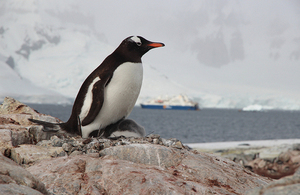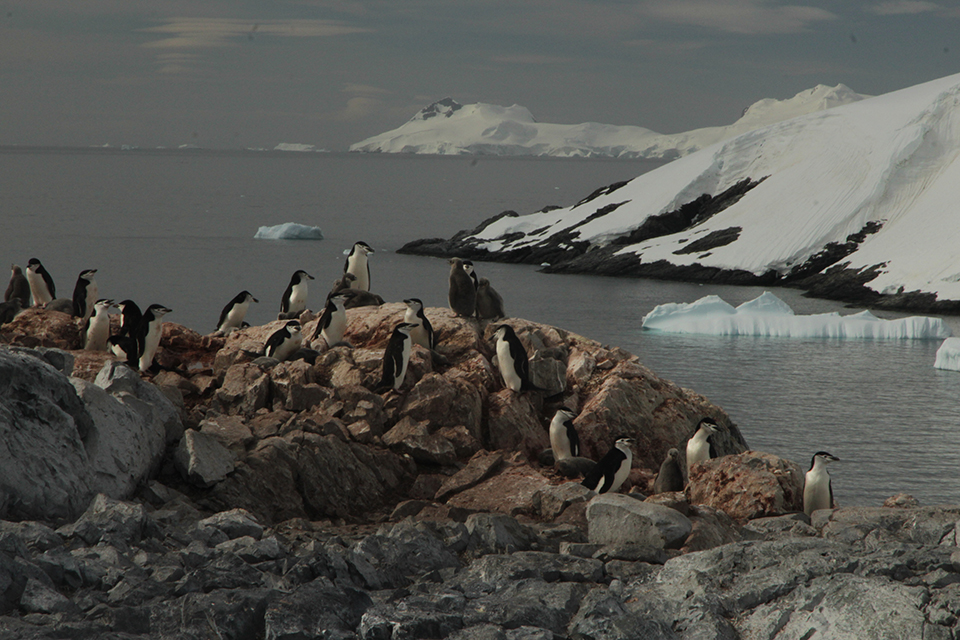Darwin Plus grant: Penguins in the Southern Ocean
Darwin’s support to monitoring penguins in the Southern Ocean has led to one of the largest citizen science ventures in the world.

There are numerous serious threats to penguins living in the Southern Ocean:
- climate change
- fisheries
- human disturbance at colonies
It can be difficult to understand which of these threats is impacting penguins in each region.
There is little baseline information against which to measure change. In the past, some form of camp or scientific base was necessary to monitor a breeding season. However, technology - remote-sensing cameras coupled with new approaches to data automation - is changing this.
A Round One Darwin Plus project, led by the University of Oxford, took an innovative technology-led approach to increasing the number of monitored penguin colonies in the Southern Ocean. The project hitch-hiked on ships of opportunity to set up a network of over 100 cameras throughout the Antarctic Peninsula, South Georgia and the South Sandwich Islands. These cameras allowed the project to monitor hard-to-reach areas - all year round - and places where human presence might disturb wildlife.
A key element of the project was crowd-sourcing the analysis: people can view, click and count penguins, which then enabled the researchers to computer automate much of the data extraction.

The Darwin Plus funding helped the project to get up and running, which has continued to grow since the funding ended.
“Penguin Watch” is now one of the largest citizen science ventures in the world. School groups can adopt their own colony - following and monitoring its progress and learning about Antarctica.
At the end of the project, in 2015, over 39000 volunteers were participating. Now in 2018, over three years after the Darwin Plus funding ended, over 50,000 volunteers contribute. This research will directly feed into policy, as the team builds evidence to determine important regions for penguins and highlight specific colonies of concern.